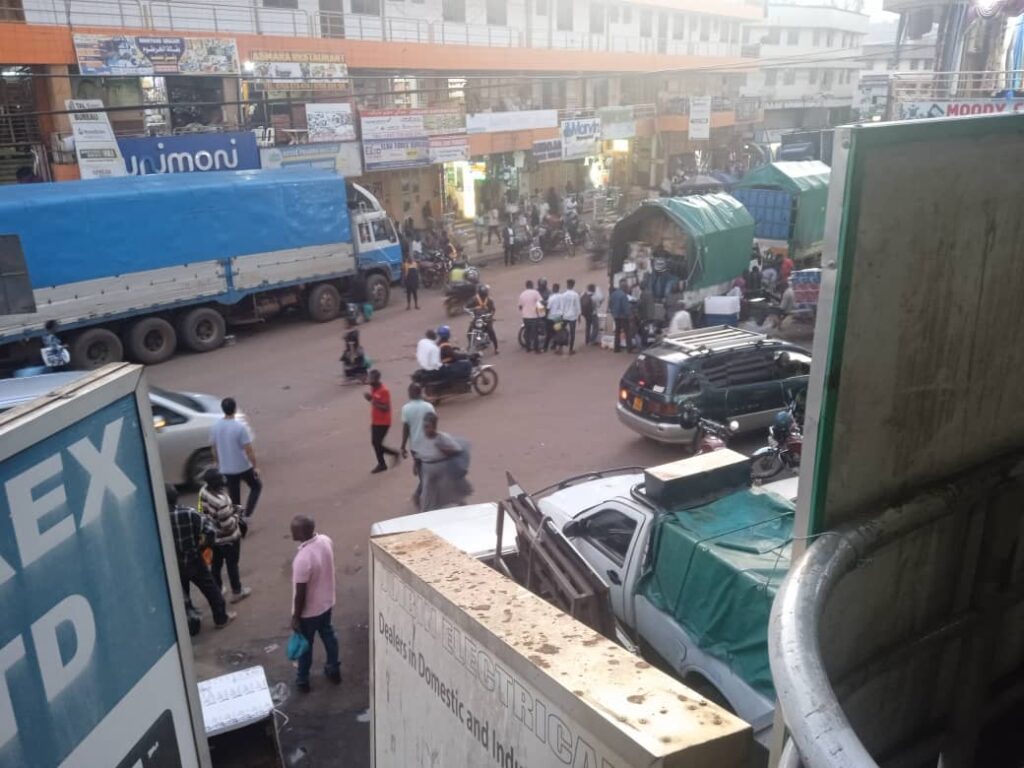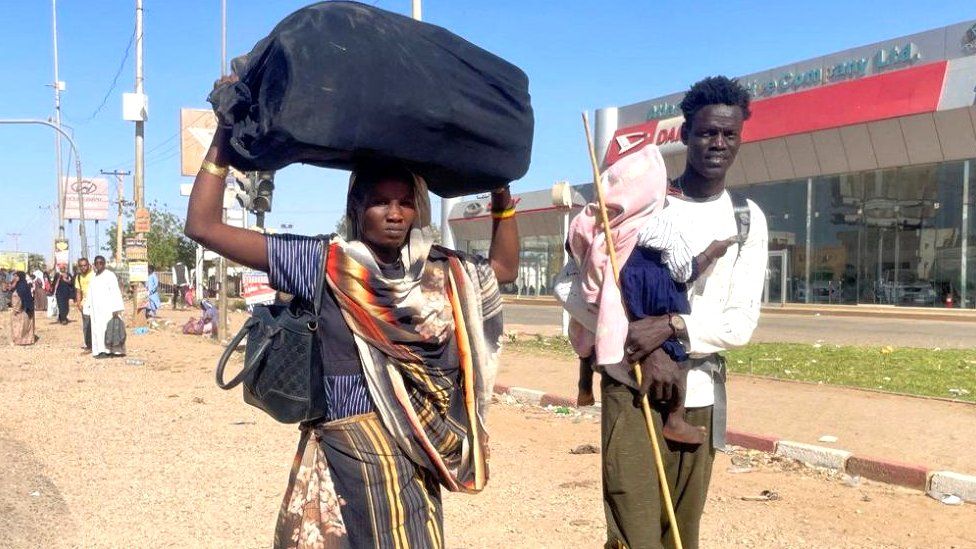Sudanese refugees: trying to make ends meet in Uganda
8 November 2023
Mohamed Ahmed, a father of three, was working as a truck driver in Oumduram, the sister city to Khartoum in the capital area of Sudan. The country was already three months into the war but Mohamed kept driving despite the clashes in order to support his family. While on the road he received a phone call telling him that a rocket had hit his home and three others in the Yarmouk area, killing 16 people –including his wife.
Despite this tragedy – he felt fortunate that his three young children, aged six, nine, and 11 were not at home when the rocket hit their house. Mohamed quickly decided to flee Khartoum for safety and took his three children to Uganda. The journey was not easy. Sudanese military intelligence stopped him at three checkpoints, at one point detaining him overnight along with his children –accusing him of belonging to the paramilitary Rapid Support Forces (RSF). After a long
After a long trip, he and his children reached Renk in South Sudan and eventually Kampala, Uganda. The father of three came near penniless to Kampala. “We just wanted to save our lives and the rest is for God,” he added. While grateful to Uganda for accepting him, he and his children spend every day praying the war will end and that he can return home to Sudan.
Amana Babiker can still remember how RSF soldiers shot at the bus she was traveling in to escape the fighting in Khartoum. After heavy clashes in Fitihab, Omdurman took place and food supplies began to run out – Amana decided it was time to leave. Once she and her family reached Wad Medani – she still did not feel safe so she decided to keep moving to Uganda.

Many Sudanese have fled to Uganda since it has one of the most welcoming refugee policies globally, especially in terms of entrance access, says Refugee and Internally Displaced Persons researcher, Dirar Adam Dirar. According to Dirar, over 40,000 Sudanese have fled to Uganda as a result of the current conflict in Sudan, with the majority based in Kampala. Others, roughly 1 percent or less, have relocated to one of Uganda’s settlement centres in the town of Mbale, Dirar added.
Mohamed Ahmed, like many Sudanese refugees in Uganda, is struggling to attain support for his family. One of Mohamed’s daughters is disabled and suffering from a lack of medicine – but cannot afford to take her to a hospital or pay for his children’s school fees. The memories of what they experienced back home to the stress of eking out a sustainable life in exile triggers considerable psychological shocks for Sudanese refugees, says Adam Yahya, a long-time Sudanese refugee in the country. He added that many Sudanese refugees need to go to camps but they lack guidance -even directions. Covering basic costs within the city can be challenging for many who lost all sources of income due to the war, he added.
Some newly arrived Sudanese refugees traveled to the refugee camps but ended up leaving almost immediately due to the lack of services provided, says lawyer Rashid Mospal, who fled the violence in Khartoum, taking ten days to reach Kampala. Mospal says some organisations provide assistance but few refugees are aware of the services that are available to them.


